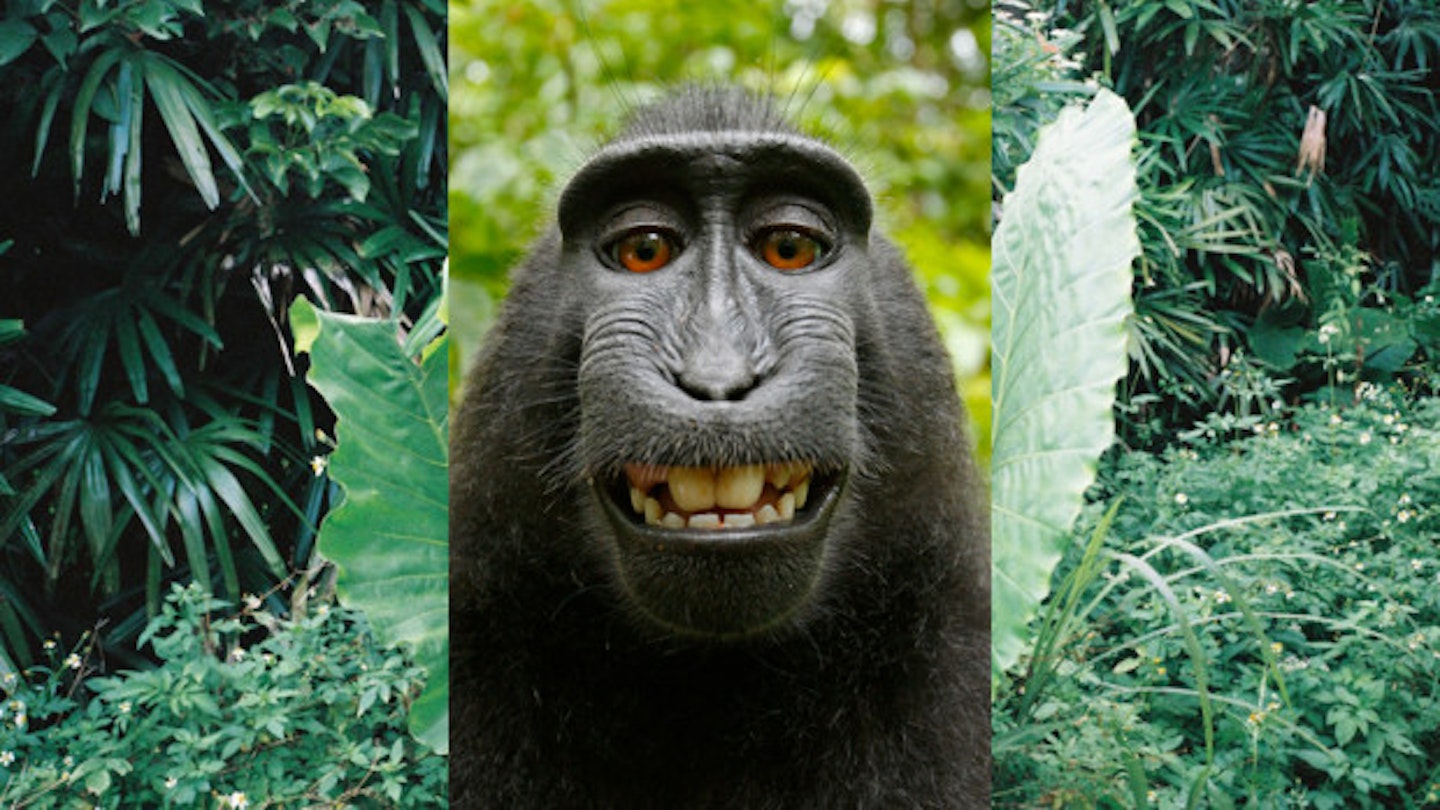Today in ffs selfie news: Wikimedia, the non-profit organisation behind Wikipedia, has refused several requests from a photographer to stop distributing his photograph for free on the basis that the monkey pressed the shutter and should, therefore, own the copyright. And yes, you read that right.
Renowned British nature photographer David Slater was in Indonesia in 2011 photographing crested black macaques when one of the monkeys stole his equipment and took hundreds of selfies. Amongst the mainly blurry and useless snaps was one including a grinning female macaque, which went viral after it was printed on websites and media platforms all over the world. Wikimedia then added the picture to the Wikimedia Commons collection of 22,302,592 pictures and images that are free to use by anyone online without asking David’s permission to do so.
READ MORE: Lolling Turkish Women Respond To Minister's Morality Crusade Via Selfies
Slater is arguing that the decision is jeopardising his income as anyone can take the image and publish it for free, without having to pay him a royalty fee. But Wikimedia insist that because the monkey pressed the shutter button, he should own the copyright.
‘If the monkey took it, it owns copyright, not me – that’s their basic argument. What they don’t realise is that it needs a court to decide that. I’ve told them it's not public domain, they’ve got no right to say that its public domain. A monkey pressed the button, but I did all the setting up,' David says. ‘That trip cost me about £2,000 for that monkey shot. Not to mention the £5,000 of equipment I carried, the insurance, the computer stuff I used to process the images. Photography is an expensive profession that’s being encroached upon. They’re taking our livelihoods away. For every 10,000 images I take, one makes money that keeps me going. And that was one of those images. It was like a year of work, really.’
The argument (bizarrely) centres around the question of whether the monkey is or isn’t a sentient being (there’s a sentence we never thought we’d write). Wikimedia simply ‘does not agree’ that the photographer owns the copyright, but US law means that ‘non-human authors’ do not have the right to automatic ownership of photographs they take.
According to the law: ‘To claim copyright, the photographer would have had to make substantial contributions to the final image, and even then, they'd only have copyright for those alterations, not the underlying image. This means that there was no one on whom to bestow copyright, so the image falls into the public domain.’
Confusing, right? And whilst we really want to side with the monkey here, we're pretty certain that the human photographer in question probably has more use of the money generated from the photo than the monkey...
Like this? Then you might be interested in...
This Photographer Brilliantly Depicts What Celeb Diets Actually Look Like
New Instagram Features Will Make You Seem Like A Much Better Photographer Than You Actually Are
Follow Sophie on Twitter @sophiecullinane
Picture: Caters, David J Slater and Lukasz Wierzbowski
This article originally appeared on The Debrief.
